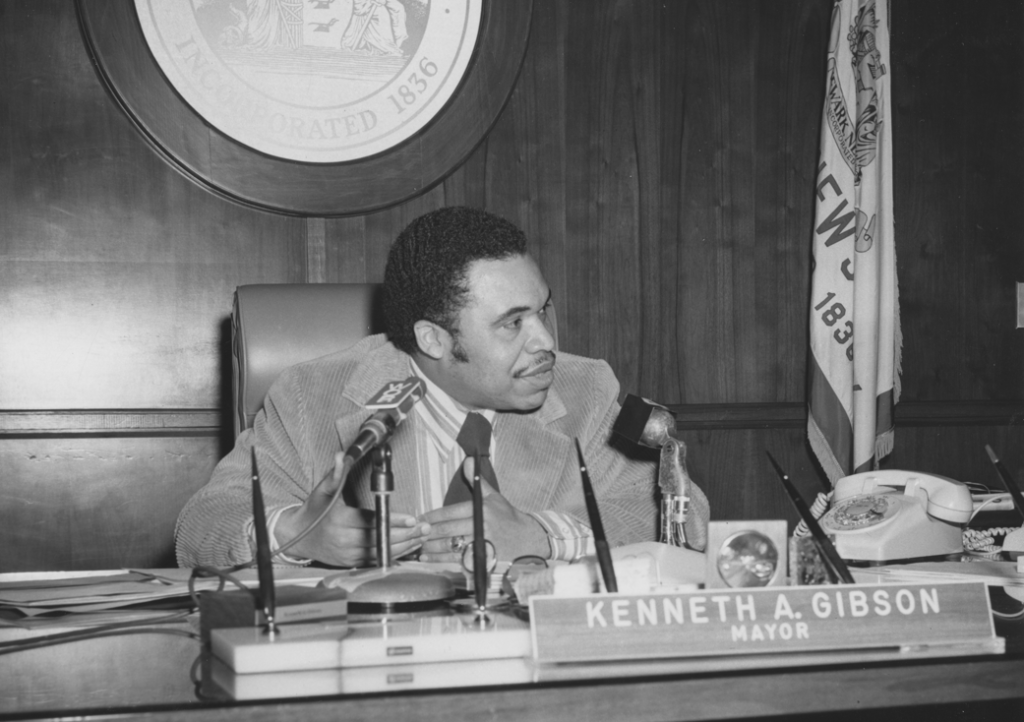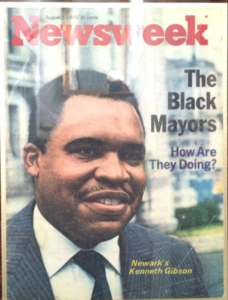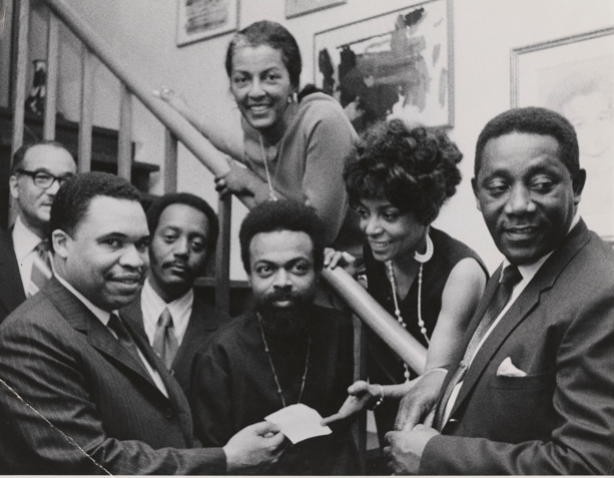Former Newark Mayor Ken Gibson has Died


Newark's first African American Mayor Ken Gibson died today.
He was 86.
A legendary political figure in Newark who emerged as a gentle and unifying force in the aftermath of the city's worst, most racially divisive period, Mr. Gibson became mayor of Brick City in 1970, defeating Hugh Addonizio. The Alabama native and Newark Central High graduate served for 16 years, before failing in his fifth reelection bid in 1986, losing to Sharpe James.
Senator Ronald L. Rice (D-28) was an early supporter of Gibson.
"When I got back from Vietnam, the cops used to roll up on me and say, 'you're going to vote for Ken Gibson, aren't you?' I didn't do any campaigning but I voted for him," Rice recalled.
"He laid a terrific foundation for Sharpe to build on," said the veteran senator. "It's a great loss for the city of Newark because he never stopped mentoring us. He wanted people to do well. He wanted people of color to do well. I'm going to miss him."
Rice said he put Newark back on track after the troubles in the late 1960s and laid the foundation for the present. Assemblyman Ralph Caputo (D-28) agreed, and called Mr. Gibson the right leader to lift the city out of the 1960s.
"He was very kind and very soft-spoken," Caputo said. "He was the right guy for the right time. He was a dear friend."
When Ken Gibson became mayor in 1970, his achievement was a national news event.
"I brought him onto the floor of the legislature," said Caputo, who represented Newark in the legislature at that time. "It was a healing process, his becoming mayor. The city was so polarized he brought the community together and he showed people how to operate without prejudice. Imagine if you had some demagogue in there. It wouldn't have worked. Ken knew how to calm the waters. He was not vindictive great and he had a sense of humor. There wasn't a mean bone in his body."
"Mayor Ken Gibson was a pioneer in New Jersey government and politics," said Essex County Clerk Chris Durkin. "He understood fully the gravity of leading New Jersey's biggest city through its transformative years. He was an honorable man, a brilliant leader, and a trusted mentor."
Former Assemblyman Bill Payne knew Gibson when the two of them worked together at the Newark Housing Authority when Payne ran for councilman at-large and Gibson became part of the Payne organization.
"He was a solid guy," said Payne. "If he was going to do something he was determined to do it but never in a flamboyant way. He was serious-minded.
"He gave people - not just African Americans - a sense of seriousness," Payne added. "he was a listener, a good listener. He was the right person to be the city's first African American mayor."
Mr. Gibson ran unsuccessfully for governor in 1981 and 1985.
An engineer by trade, Mr. Gibson worked for the New Jersey Highway Department from 1950 to 1960. He hired on as the chief engineer for the Newark Housing Authority and received a promotion to the position of New Jersey State Official Chief Structural for the City of Newark in 1966. Mr. Gibson headed the Newark's Business and Industry Coordinating Council and served as vice-president of the United Community Corporation, an antipoverty agency.
Indicted for bribery and stealing funds from a school construction project in Irvington, Gibson beat the rap and instead pleaded guilty to tax evasion in 2002.
The HistoryMakers interviewed Mayor Gibson in 2017.
"Only because healthcare and health conditions are symptomatic of life experiences and the quality of life," he said, reflecting on Newark when he took office in 1970.
"If the housing is poor and lead paint is all over the place; if your healthcare system is poor and people are not able to go to the doctor as much as they should; if pregnant women are not able to get care during pregnancy, then you end up with these kind of problems," he added. "I was able to put together a healthcare network, and we had the major healthcare providers join in with preventive medical care, and we were in, within one to two years, able to improve all of those statistics."
Mr. Gibson was enthusiastic about the election of sitting Mayor Ras Baraka in 2014, and joined Mayor Baraka's late father on the campaign trail prior to the poet's death. Below, Amiri Baraka (centered) is pictured with Mayor Ken Gibson in 1970, when the latter made national political history.
"Today the city stands still as we mourn the passing of one of our trailblazers," said Mayor Baraka. "Ken Gibson became the first African American Mayor of a major city on the eastern seaboard. He led in a tumultuous and difficult time as the city tried to recover from the Newark Rebellion. He was helpful to me as I became Mayor of our city and helped me with the transition. He will be remembered in his effort to live up to his words, 'Wherever the country is going, Newark will get there first.' He set the stage for every African American elected official in this state. We stand on his accomplishment and grow from his challenges. We wish his family well. On behalf of the residents of this city, we say thank you Mayor Gibson for your years of sacrifice and service."
For Governor Phil Murphy's statement on the death of Mayor Gibson, please go here.






